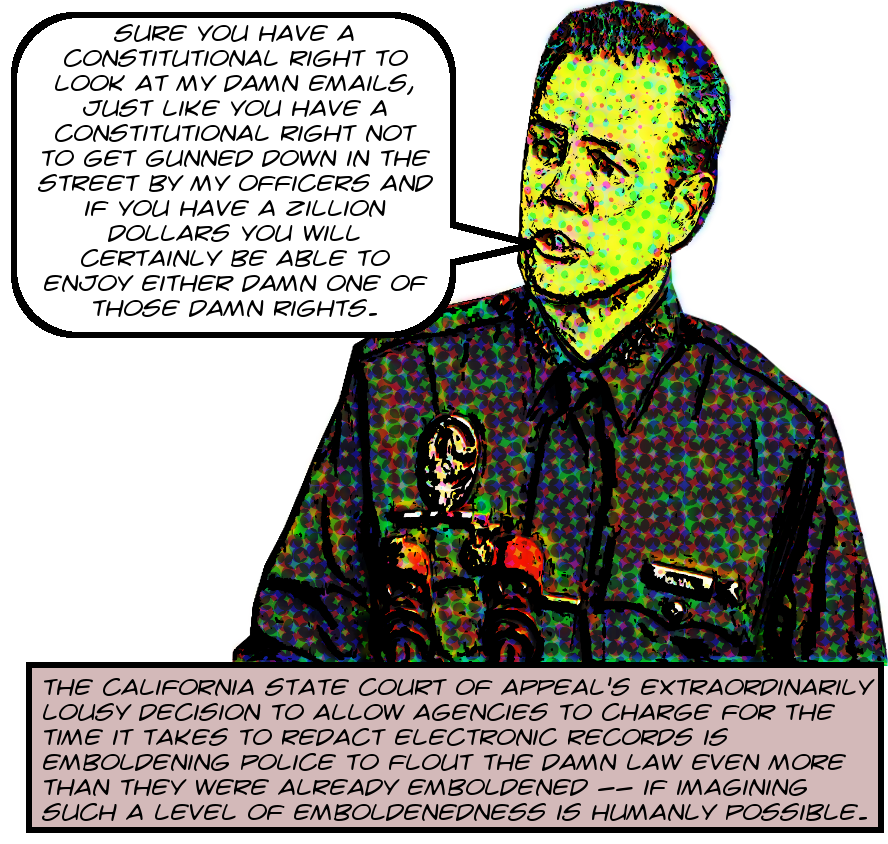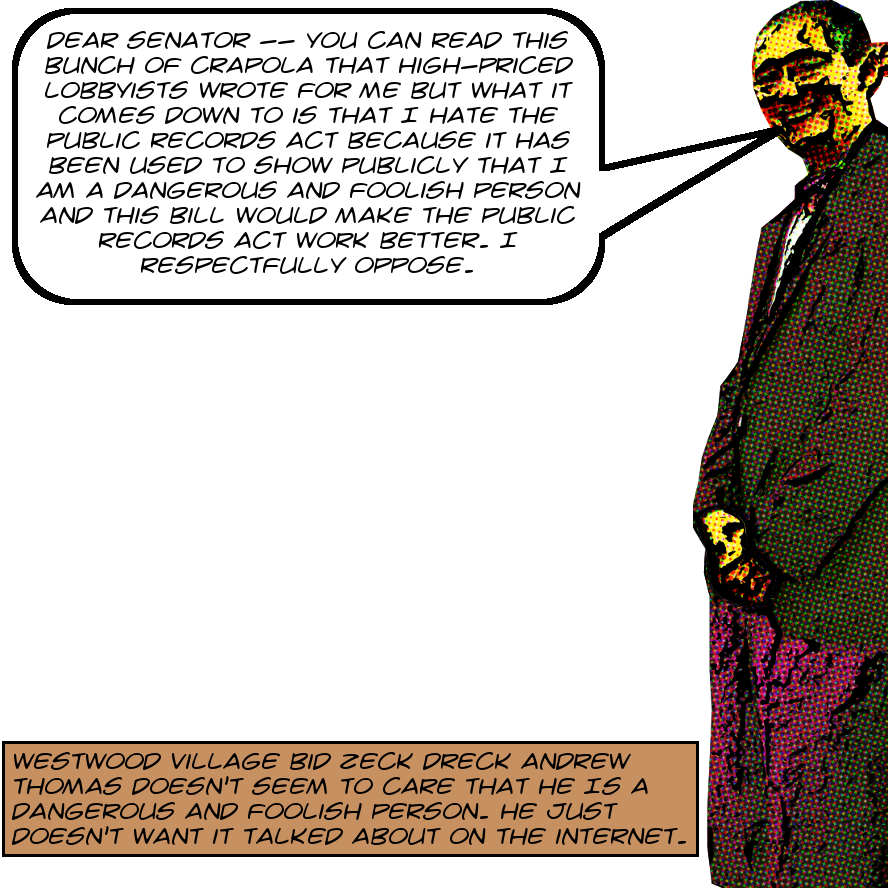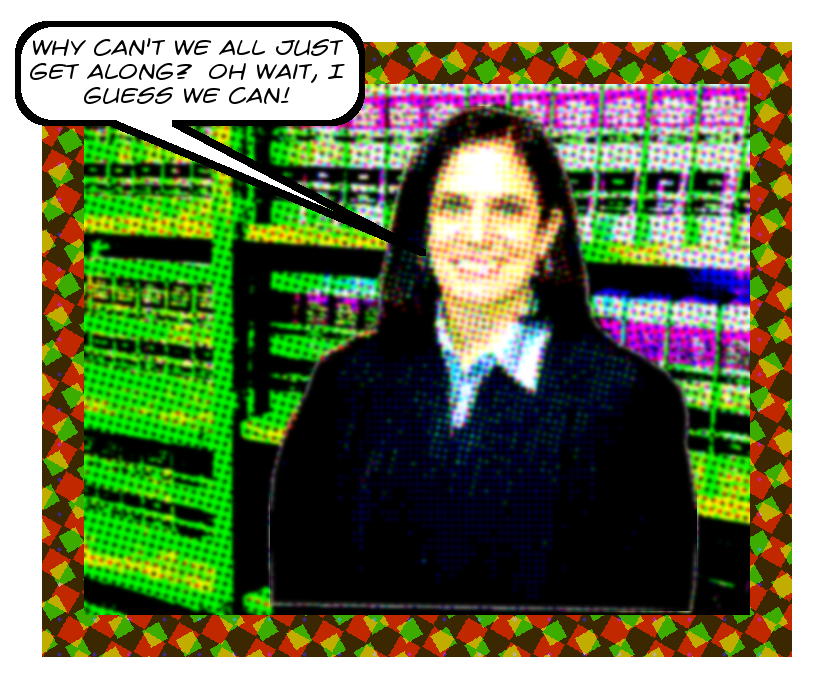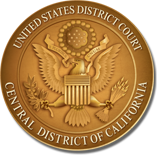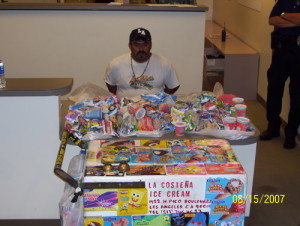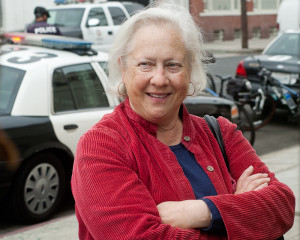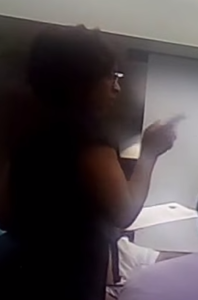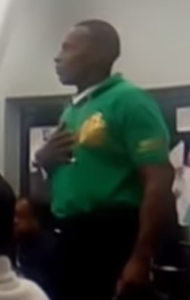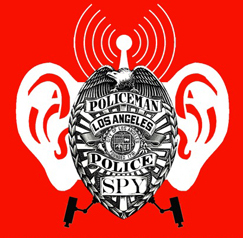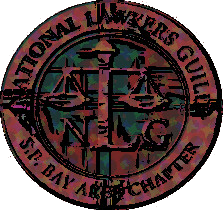 The California Public Records Act generally mandates that every person has a right to take a look at any public record at no cost. Agencies are explicitly not allowed to charge requesters for the time it takes to search for records, organize them for inspection, or review and redact them for exempt information. The one major exception to this has to do with records stored in computers that require programming to extract information responsive to a request.1
The California Public Records Act generally mandates that every person has a right to take a look at any public record at no cost. Agencies are explicitly not allowed to charge requesters for the time it takes to search for records, organize them for inspection, or review and redact them for exempt information. The one major exception to this has to do with records stored in computers that require programming to extract information responsive to a request.1
For instance, in Los Angeles, the City Attorney maintains an SQL database of all its prosecutions. The database itself evidently contains too much data for it to be practicable for humans to review the whole thing for exemptions and produce it in its entirety. But the contents are inarguably public records, so to get access to them it’s necessary to run a query against the database. This must be written in SQL and the law allows the agency to charge the requester for the time it takes to write and run the query.
Although I do not particularly like this section of the law I can see the need for something like it. The CPRA does not in general require agencies to create new records in response to requests but in this case it has to or the public would be denied access to information in databases that were too big to review, among other records and it’s at least possible to argue that someone needs to pay for the construction of these new records. This process, by the way, is known as “extraction” in CPRA circles.
So in 2015 the National Lawyers Guild San Francisco Chapter asked the City of Hayward for access to some cop videos and the City said not only did they have to redact the videos but that video redaction required special software and thus it constituted extraction and could therefore be billed to the requester. The cost was in the thousands of dollars, which the NLG paid under protest and then filed a petition asking for a refund on the theory that the charge was illegal under the law because redaction is not extraction.
The NLG won in Superior Court, the City appealed the ruling and won in Appellate Court, and the case is now before the California Supreme Court. The case is now fully briefed and we’re just waiting for oral arguments to be scheduled. You can sign up for notifications at this link, but unlike many courts, it seems that the California Supreme Court does not publish copies of pleadings filed with it until after the Court rules on a case.
Which has been driving me absolutely crazy because this case is so important and reporters, even good ones,2 consistently get the facts wrong when writing about legal matters. There is no substitute for reading the primary sources. I’ve been reduced to writing begging emails to various lawyers pleading for PDFs. And occasionally they give them to me and I write about them.3
But on Thursday I made a huge breakthrough! I was downtown for various reasons and stopped in at the County Law Library to read cases on Westlaw and I learned that they collect appellate pleadings on their site, including ones from the California Supreme Court. I looked and they did in fact have PDFs of everything filed in this monumental case! And I could read it at the Law Library computer.
Now, generally Westlaw is very good about giving copies things to users. Like past published decisions are no problem, just click a button and put in your email address and it will send you a PDF of any published opinion. So I selected all these and hit the button and told it to email and …. got a damn error message saying that these PDFs were restricted and could only be printed on paper.
Which isn’t acceptable for any number of reasons, not least because there are hundreds of pages involved and it costs money to print on paper. This is not to mention the fact that it destroys the OCR and redoing the OCR invariably introduces errors. It’s horrible. But I fooled around some more and it turns out that when viewing the PDF on the library computer it’s possible to save a local copy.
Then, because the library is kind enough to provide access to a full-featured browser, it’s possible to upload the saved PDFs to a cloud service or something similar, and get copies that way. Or log into an email account and mail them to oneself as attachments So I did something like that, and got 18 new files, and published them all on Archive.Org for you right here! And also here is a list of the whole collection with links and brief descriptions.
Continue reading Here Are Copies Of Many Of The Pleadings Filed With The California Supreme Court In The Monumentally Important California Public Records Act Case National Lawyers Guild V. City Of Hayward — It’s Extraordinarily Difficult To Get Copies Of Appellate Pleadings In California But I Found A Way To Do It — Which Is Also Explained Here If You’re Interested

